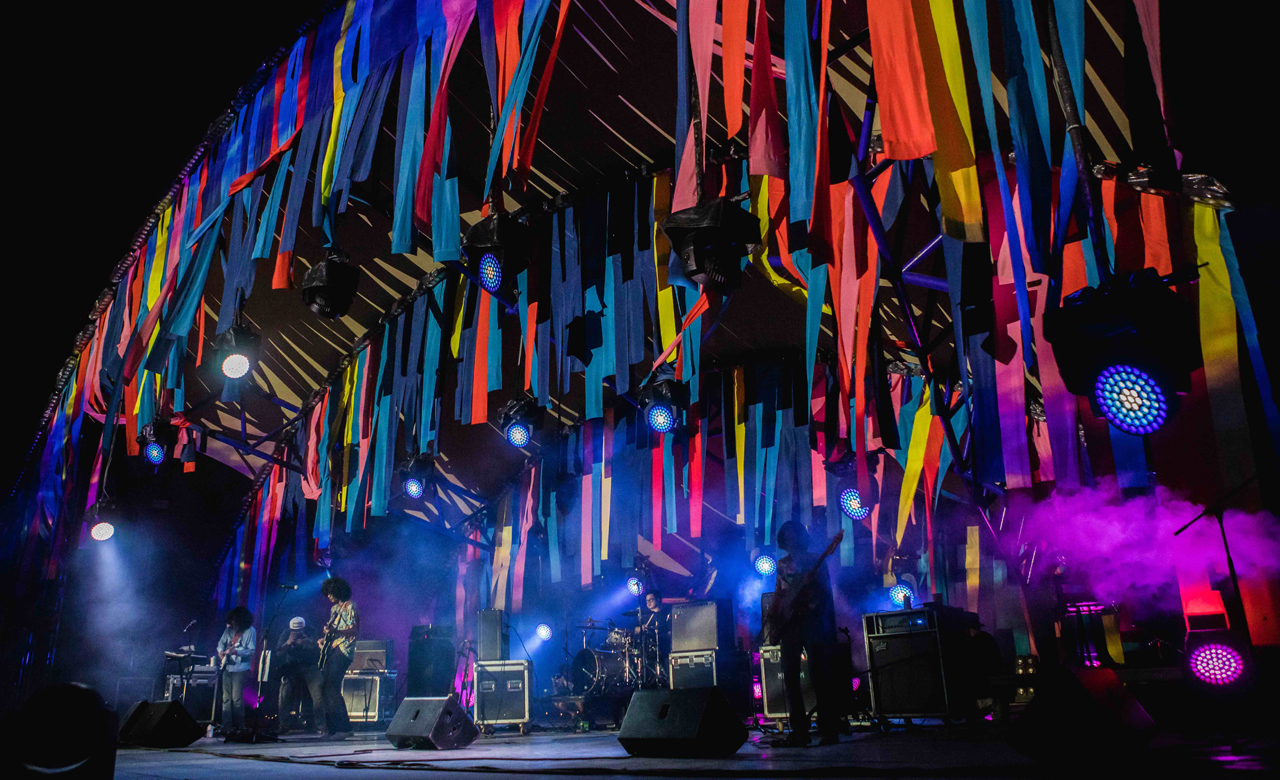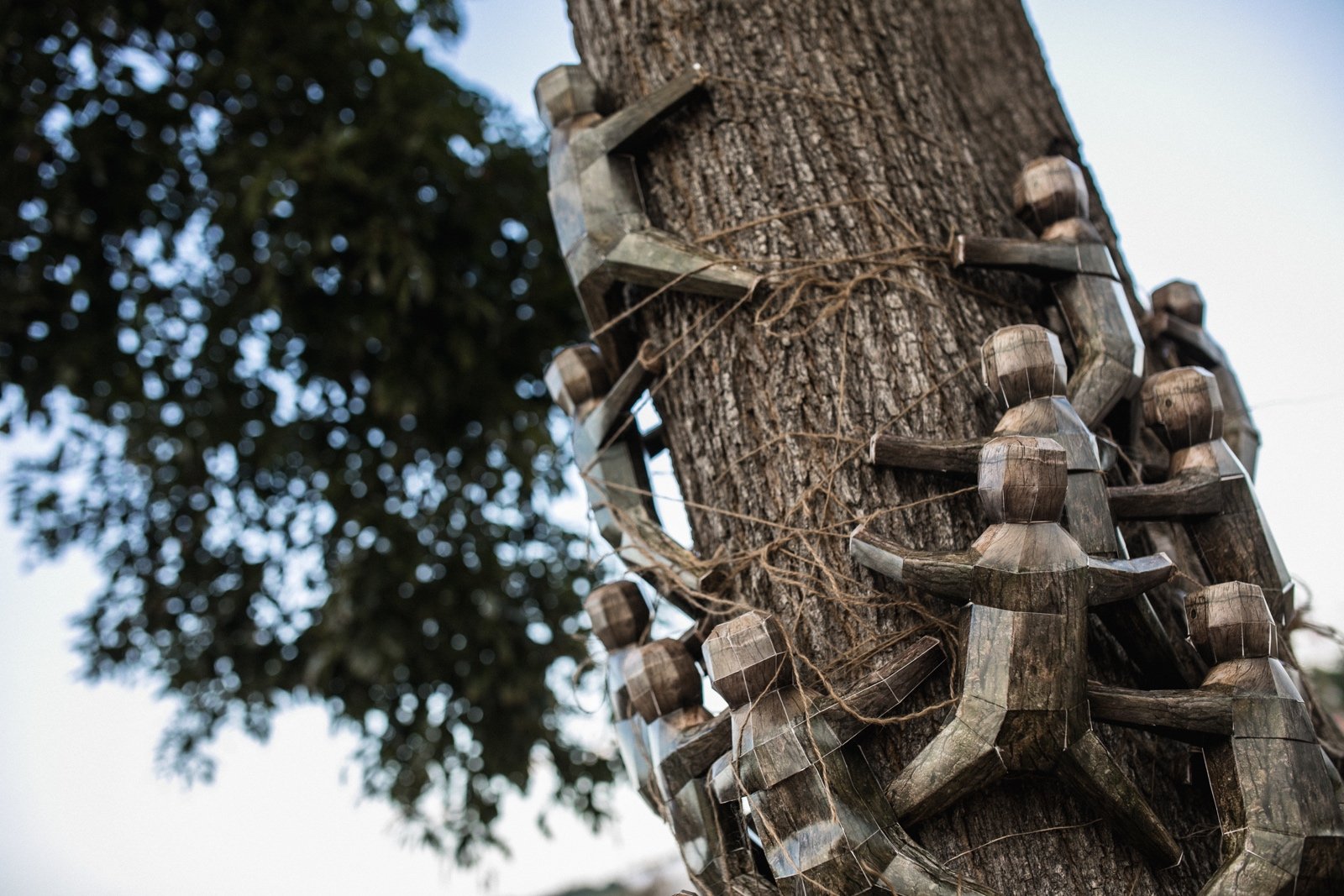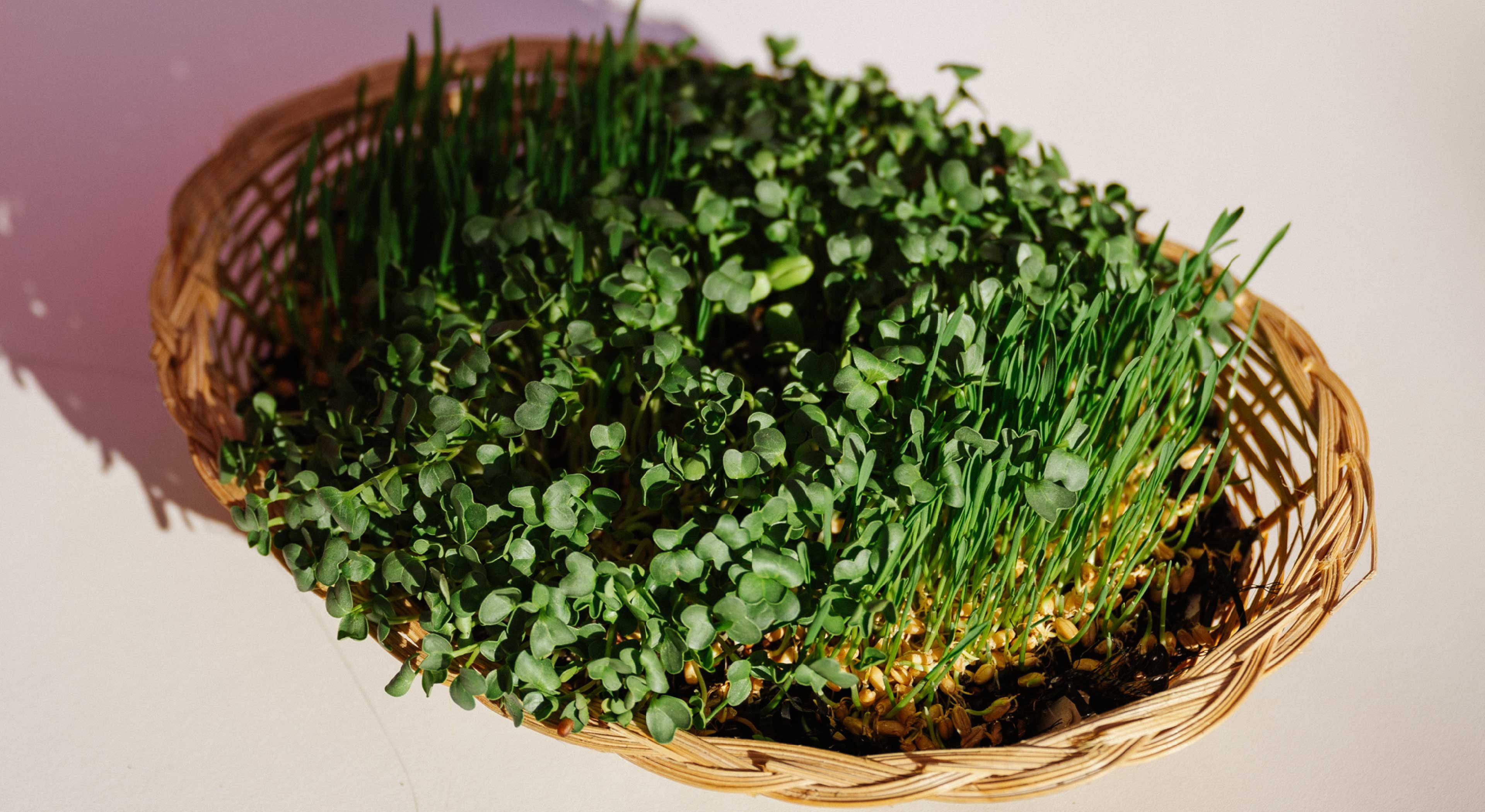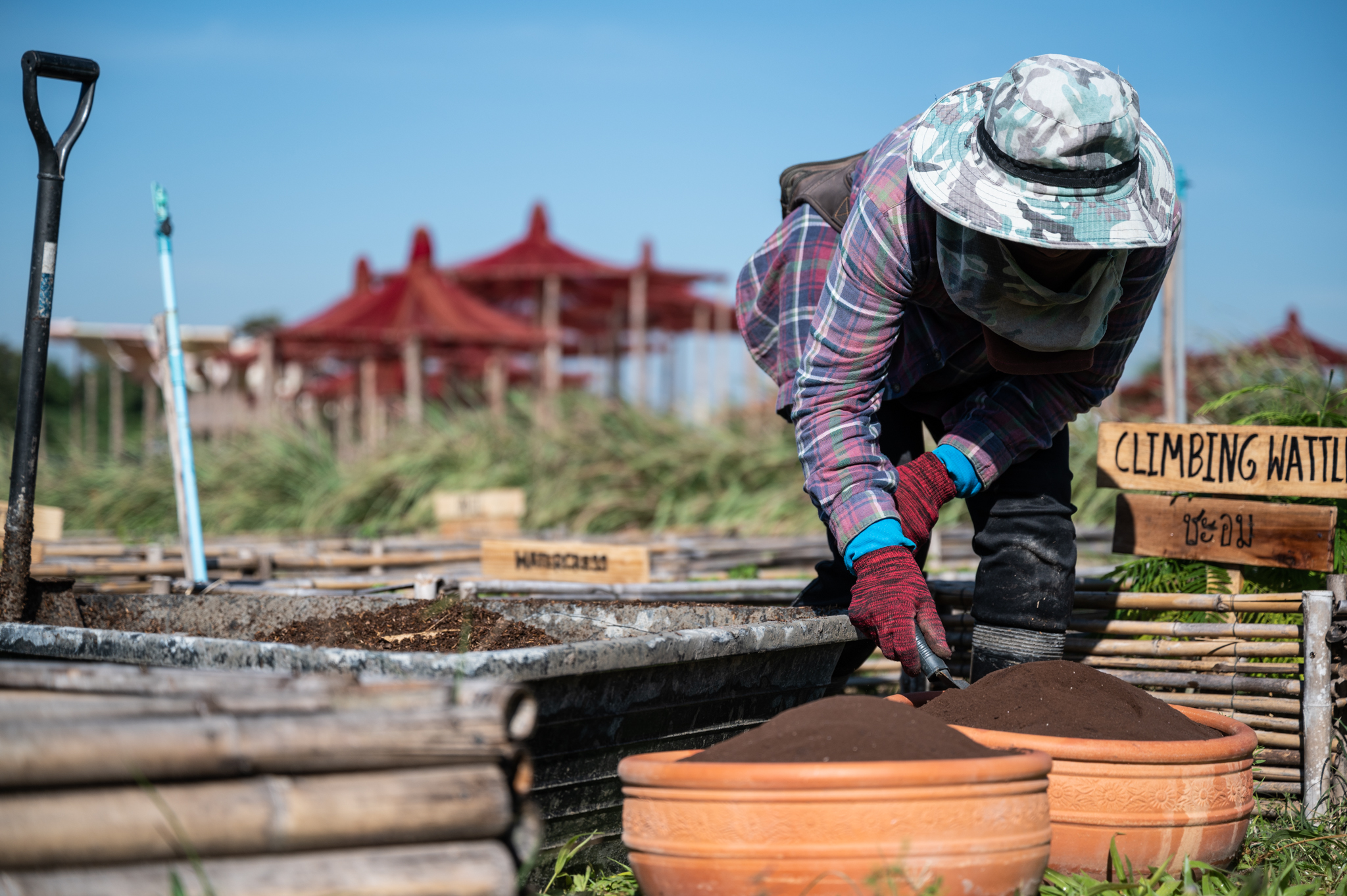The Fields are beautiful. We’ve talked about that before. We really talk about that a lot. But keeping The Fields in their lush and pristine condition, while also creating an inclusive community gathering for thousands of people, is a challenge—one that requires some big plans, and one that reflects what we try to do with all our events: to make a positive contribution to the planet.
That’s not always as simple as it sounds. Like with anything, it’s sometimes much, much easier to just do nothing. To make a change takes a change, or at least a goal. For Moobaan Wonder, our goal is to leave no trace. What that means is:
People generate waste. Events generate even more. Moobaan Wonder will generate a lot—but we believe waste has worth.
Visitors to Moobaan Wonder will find seven different streamed bins to sort their waste into: Cans and Bottles, Coconuts, Cups and Plates, Food Waste, Liquid Waste, Water Boxes, and Non-recyclable. From each source, we’ll sort, store, and deliver the waste to places where it can be used.
Food waste is kept at The Fields, composted naturally to create nutrient-dense fertilizer for the farm all year long. There’s a complicated process involved, but the basic principle is to let nature take its course, and return what came from the land back to the land.
Liquid waste is stored onsite before being treated naturally at a water treatment facility and turning back into water. This way, we can make sure that nothing but safe water makes its way to drains or the grounds.
Naturally biodegradable bagasse plates and cups are soaked and shredded, forming a nourishing pulp for the farms. The pulp is great because it’s more resistant to drought and flooding than traditional food waste compost, so we mix a bit of both in our organic farm.
Aluminium cans and glass bottles are separated by color to be recycled in local recycling centers. Aluminium cans can be recycled forever, without a loss of material. Recycled glass (known as cullet) melts at a lower temperature than is needed for new glass, reducing emissions and waste in the glass-making process.
Empty coconut husks are returned to where they were grown, to be broken down and used as fertilizer for the coconut trees and surrounding plants at Suan Maprao Luang Wit farm in Sampran, Nakhon Patom.
Water boxes are flattened, dried, shredded, and pressed into roofing tiles by the recycling geniuses at Fiber Pattana, ensuring that the materials live their long lives in useful ways, not in landfill and waterways.
Every other piece of waste is sent to a cement facility, where it is used to replace coal in industrial kilns. This reduces the amount of CO2 in the manufacturing process, and is a semi-renewable source of fuel.
Plastic isn’t so fantastic when it’s only used once. At all Moobaan Wonder events, we ban single-use plastic packaging and items, and reduce our reliance on single-use objects altogether.
Our plates and cups are made here in Thailand from bagasse, a byproduct of sugar production formed from the leftover husks of sugarcane after the sweet juice has been extracted. It’s a stable, food-safe product that biodegrades at a lower temperature in a shorter time than other compostable plates, and represents a value-add product for sugarcane growers. Bamboo skewers and cutlery share the same fate, and help to retain nutrients and moisture in the pulp process.
Our straws are made from paper, an easily-composted material. Our signage is printed on either paper or canvas, eliminating PP and other vinyl materials from the venue.
We’re working to create a sustainable system for our events, and anyone else’s. A positive impact is definitely better shared.
What you see at Moobaan Wonder can be adapted into everyday life. From reducing reliance on single-use material, to composting food waste and being conscious of consumption, we try to carry the lessons from our events into other areas. But we have to make it easy for everyone.
All our data, actions, initiatives, and details are available to share following every event. If you want some ideas for sustainable events, circular living, or lowering your impact—or you have ideas for us—we would love to hear from you.
Email us: info@wonderfruit.co



